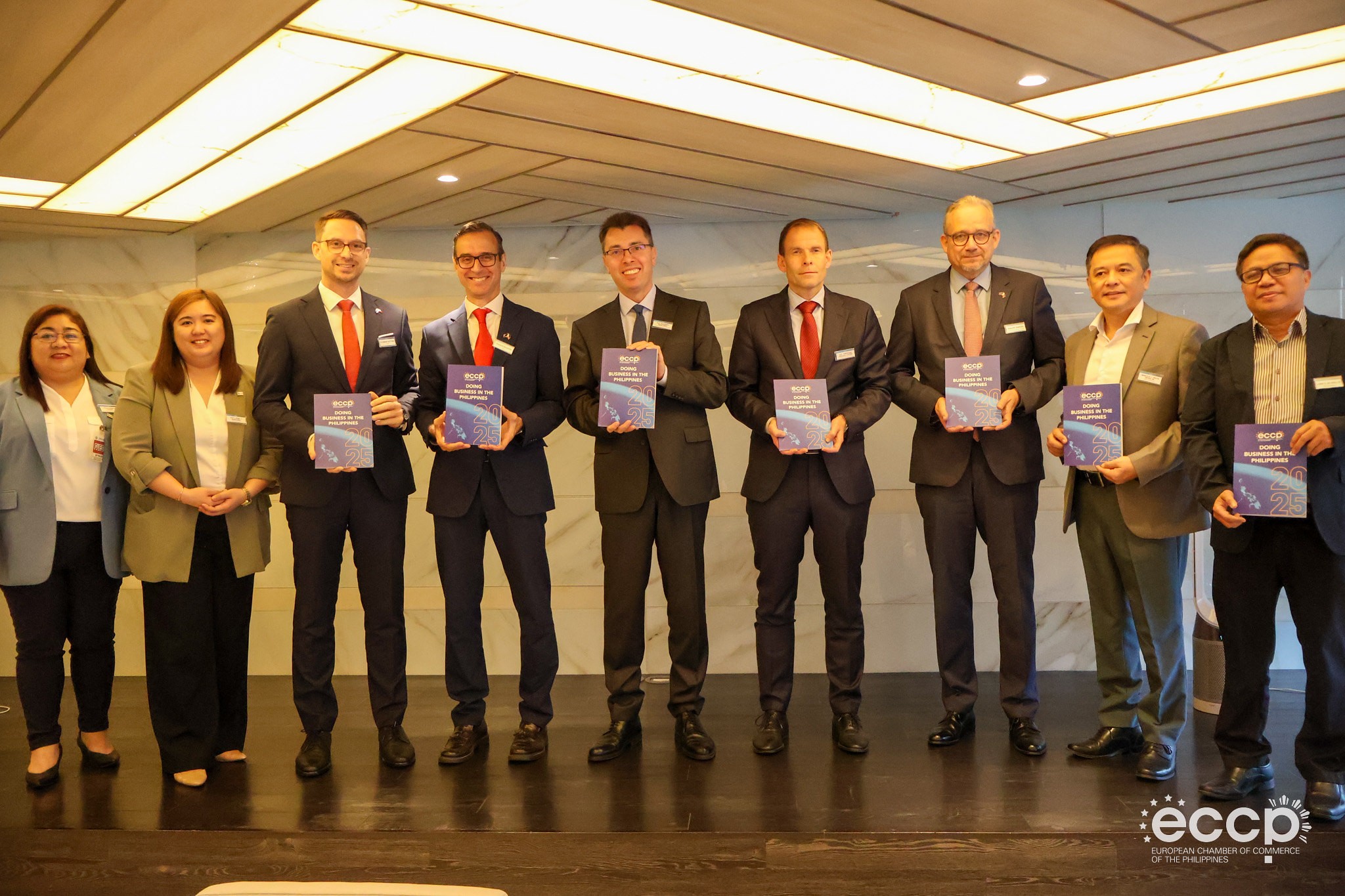
Makati City, Philippines – The Philippines is increasingly recognized as a beacon of economic growth and development, and further emerging as a prime destination for investment. This momentum is driven by forward-looking policy reforms and proactive initiatives in trade and investment promotion, as highlighted by the European Chamber of Commerce of the Philippines (ECCP) at a press conference on Thursday.
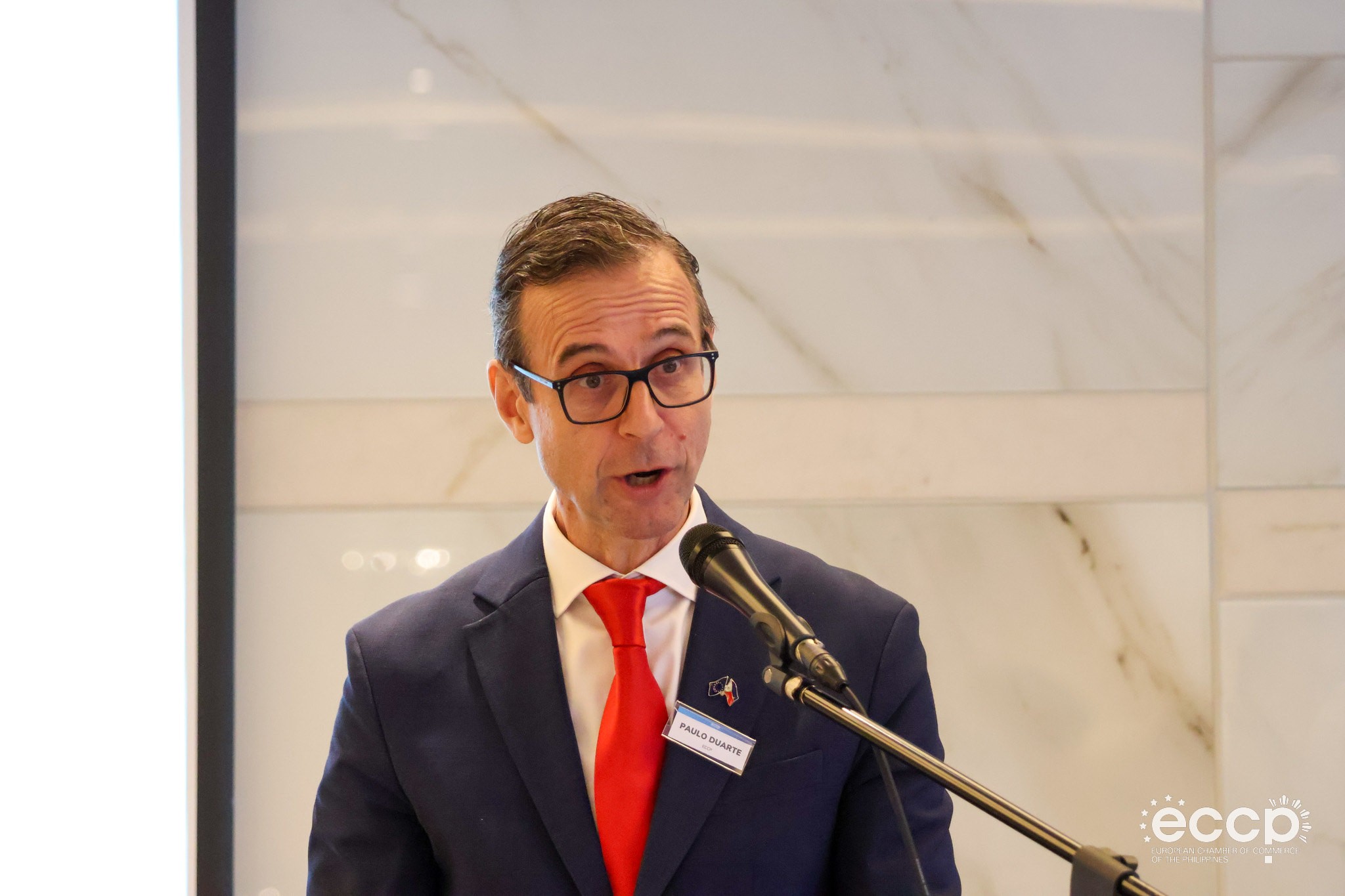
“Despite external uncertainties, the Philippine economy remains resilient. Driven by a dynamic, growing population and exceptional English proficiency, the Philippines continues to be one of the fastest-growing economies in the region,” highlighted ECCP President Paulo Duarte. “We are encouraged by the moderation of inflation, which averaged 3.2% in 2024—well within the government’s target range of 3% to 4%. Additionally, a strong GDP growth forecasting 6% for 2024 and robust remittances from our estimated 10 million overseas Filipino workers provide significant support to the economy.”
To maintain this trajectory, the Philippines must not lose steam in implementing policy and regulatory reforms, helping unlock the Philippines’ full potential. Recent developments include the second round of negotiations for the EU-Philippines Free Trade Agreement (FTA) set to take place in February, which opens opportunities for stronger trade and investment ties between the Philippines and Europe.
The government has also recently enacted the Corporate Recovery and Tax Incentives for Enterprises to Maximize Opportunities for Reinvigorating the Economy (CREATE MORE) Act, designed to optimize the Philippines’ tax regime, streamline business processes, reduce costs, and enhance the country’s global competitiveness. Complementing this is the signing of Executive Order (EO) No. 18, establishing Green Lanes for Strategic Investments, which further accelerates the approval processes for licenses and permits, demonstrating the government’s commitment to fostering a business-friendly environment.
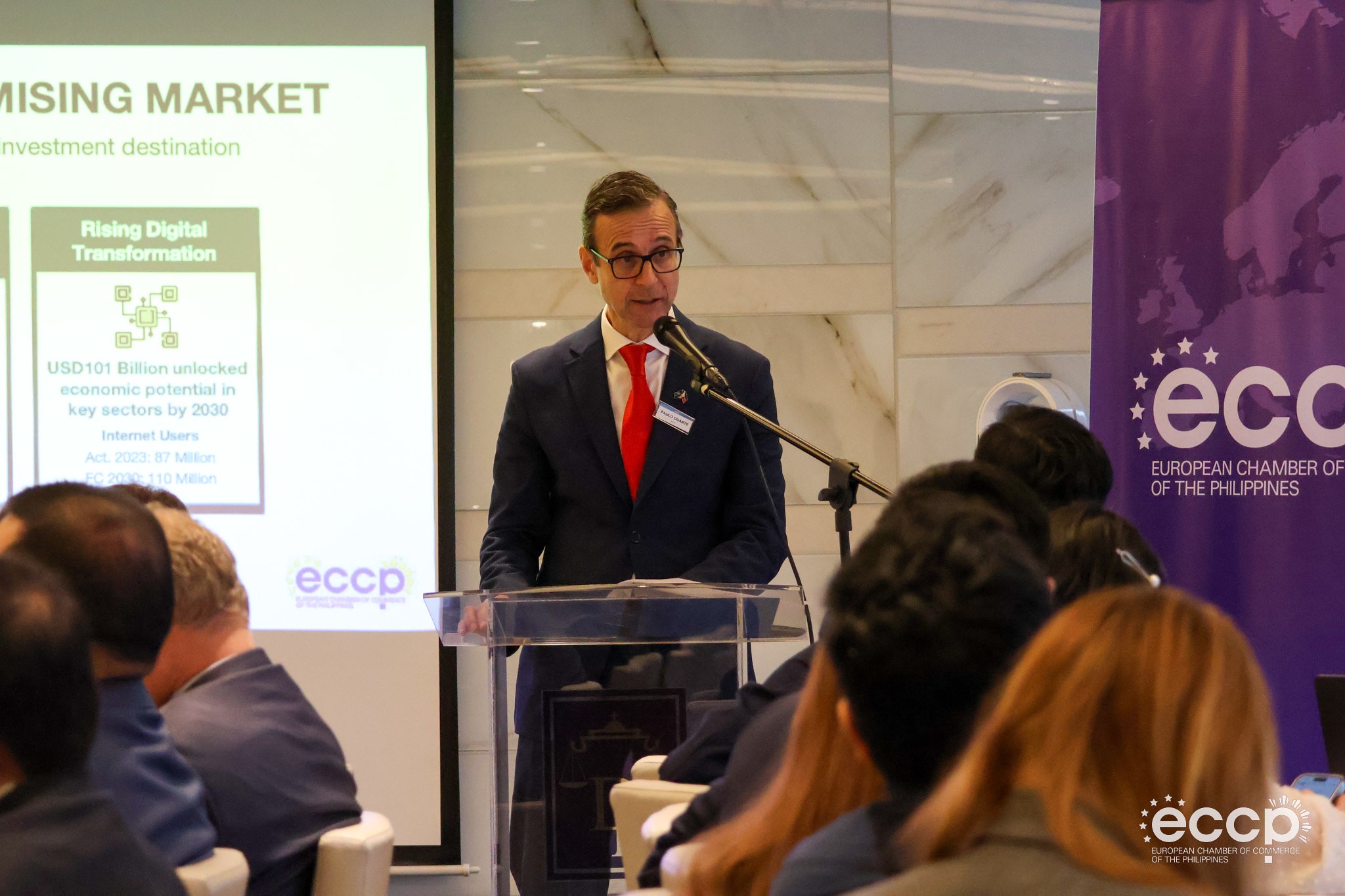
“While we welcome these initiatives, more needs to be done,” stressed Duarte. “According to the 2024 World Competitiveness Report, the Philippines still ranks 52nd out of 67 countries, maintaining its position from the previous year. Despite notable improvements in government ffficiency, the country experienced setbacks in crucial areas such as infrastructure and business efficiency.”
Duarte also highlighted findings of the Chamber’s 2024 Business Sentiment Survey where 53% of respondents see ease of doing business measures in the Philippines as improving, yet 75% of respondents say there are still significant amounts of barriers to investment, business activities, or overall ease of doing business in the country.
As a foreign chamber, Duarte said the ECCP remains committed to championing reforms that create a more conducive investment climate and to bolstering collaborations with government and private sector partners in both Europe and the Philippines to maximize the country's potential and attract a larger share of global Foreign Direct Investment (FDI).
“Central to the Chamber’s agenda are initiatives to drive increased trade and investments, advocate for policies that promote economic liberalization, and enhance the ease of doing business in the Philippines,” added Duarte. “As we champion the country as a preferred investment destination, we also emphasize the integration of sustainability practices and digitalization, aligning with the Green Economy Program and the European Green Deal, among others.”
Guide to Doing Business in the Philippines
To showcase invaluable resources for businesses navigating the local landscape, the ECCP, DivinaLaw, and the Philippine Board of Investments, unveiled the latest edition of its Doing Business in the Philippines Publication alongside key government officials and heads of European diplomatic missions.
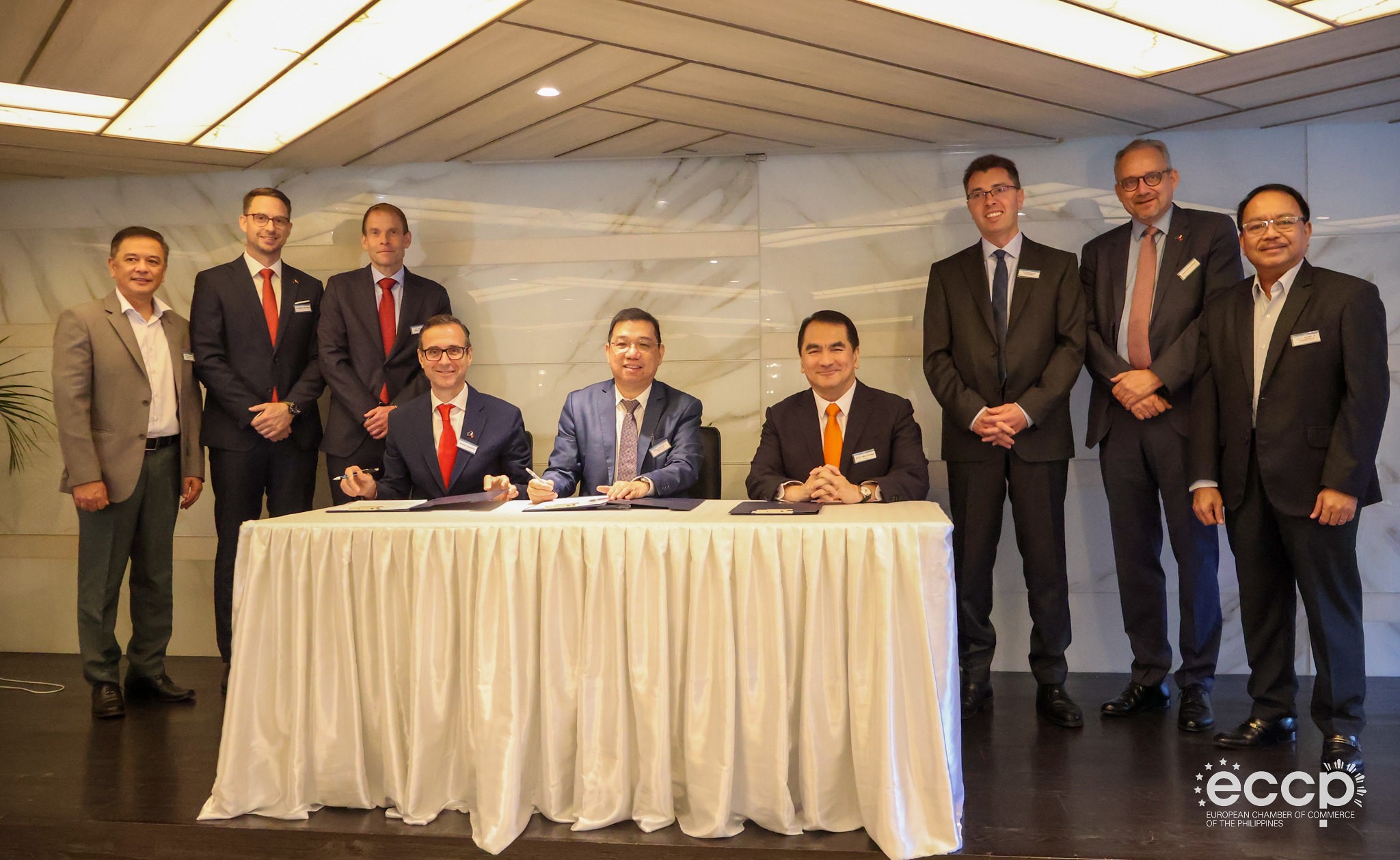
This year’s edition introduces significant updates and new features, including a reader-friendly guide to business registration and permits, complete with details on relevant regulating agencies, a dedicated chapter on fiscal and non-fiscal incentives under the recently enacted CREATE MORE Act and an expanded section on naturalization within the Immigration chapter. This year’s edition features four focus industries and specific regulations on renewable energy, financial technology, real estate, and mining.
Present at the Doing Business in the Philippines Press Launch were H.E. Massimo Santoro, Ambassador Extraordinary and Plenipotentiary of the Delegation of the European Union to the Philippines; H.E. Christian Halaas Lyster, Ambassador Extraordinary and Plenipotentiary of the Embassy of Norway; Hon. Ceferino Rodolfo, DTI Undersecretary for Industry Development and Investment Promotion Group (IPG) and Vice Chairman and Managing Head of the Board of Investments; and DivinaLaw Managing Director Atty. Nilo T. Divina.
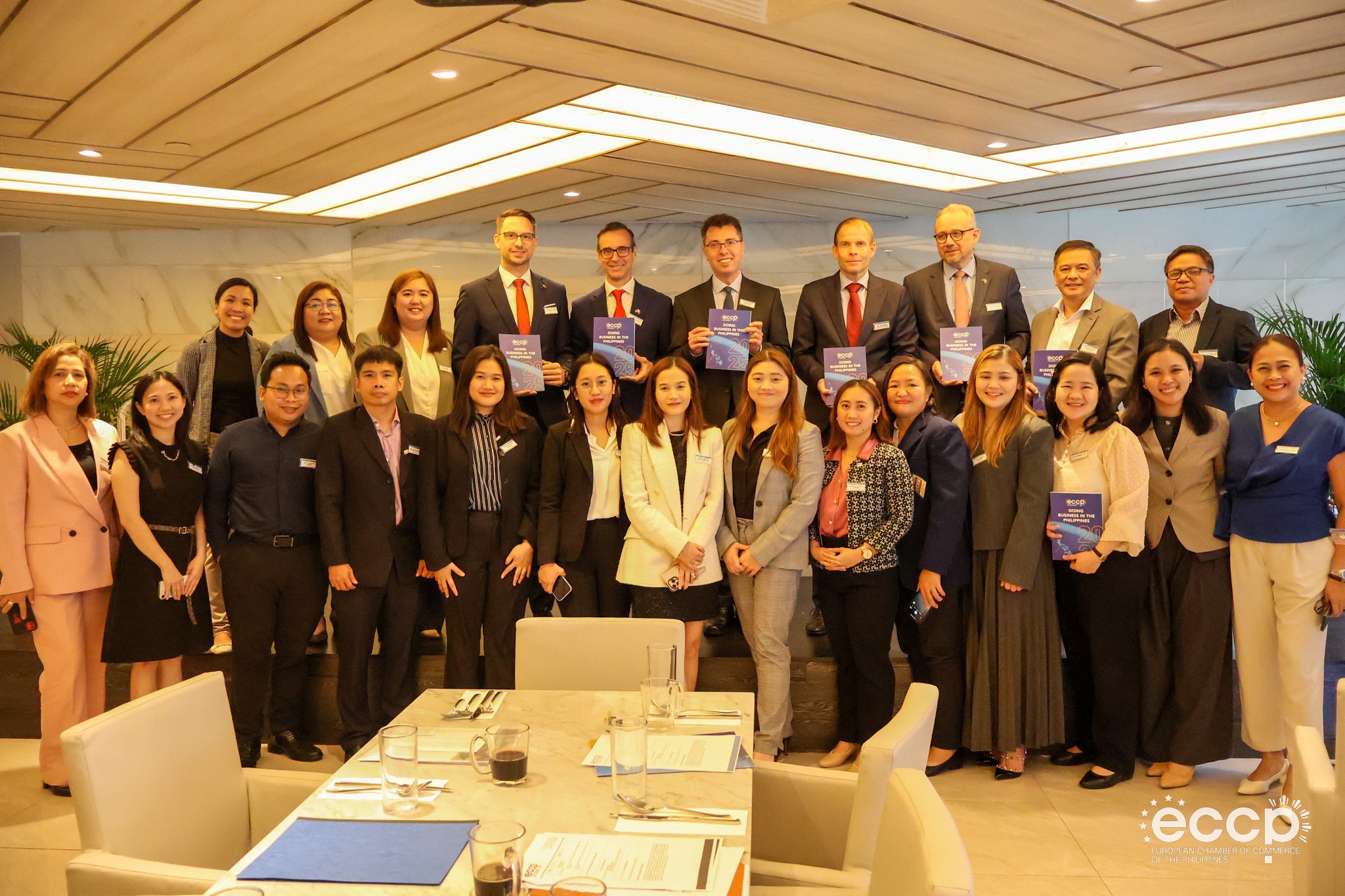
About the 2025 Doing Business in the Philippines Guidebook
The European Chamber of Commerce of the Philippines (ECCP), in tripartite with DivinaLaw and the Board of Investments of the Philippines, is pleased to unveil its Doing Business in the Philippines 2025 publication on 23 January 2025. This publication aims to provide potential investors with a complete guidebook on the country, its laws, policies, procedures, and regulations. The guide aims to increase investor confidence and equip them to make well-informed business and investment decisions. Some of the topics include taxation, employment, immigration, and dispute resolution among others.